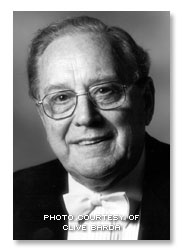
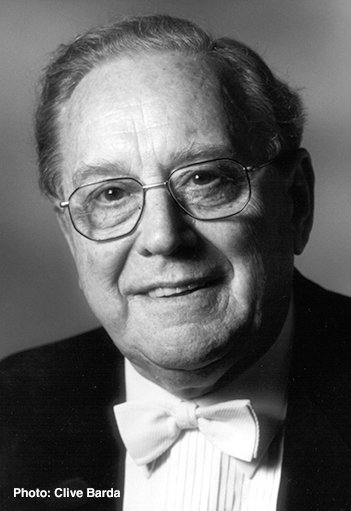
Although born in America, Charles Mackerras grew up and was educated in Australia as part of an extremely musical family; listening to gramophone records of major works was an early experience of childhood. He soon decided that he wished to be a conductor, and learnt to play the oboe as a way of getting into an orchestra and gaining experience of orchestral playing. As a result of conscription for World War II, there was a shortage of oboists and Mackerras was soon launched on a professional career even while he was still at school. He studied conducting, composition and harmony at the New South Wales Conservatorium in Sydney, replacing his own oboe teacher as Professor of Oboe when the tutor left. After graduating, he played with the Australian Broadcasting Corporation Radio Orchestra (which later became the Sydney Symphony Orchestra) from 1943 to 1946, and he also joined the Colgate/Palmolive Commercial Radio Unit, playing jazz and light opera arrangements, a number of which were made by himself. When the war ended he decided to go overseas, and while many chose America, he decided to go to England with his wife. Here, after a brief period as principal oboist with the BBC Scottish Orchestra he joined the Sadler’s Wells Opera both as an oboist in the orchestra and as a répétiteur for the company. In addition he studied conducting briefly with Michael Mudie.
Whilst studying a Dvořák score on a train journey, Mackerras met a Czechoslovakian who told him of a British Council scholarship to study at the Prague Academy of Music in Czechoslovakia. Mackerras applied for and was awarded the scholarship, living in Prague during 1947 and 1948 in the brief period between the end of the war and the Communist takeover in 1949. This was to prove a formative experience, triggering a life-long love of Czech music in general and of the music of Janáček in particular. In Mackerras’s own words: ‘I heard Václav Talich conducting Kát’a Kabanová. That really changed my life because I became a great studier of Janáček’s music and everything about him.’ Prague was also Mozart’s favourite city and Mackerras’s Mozart soon became noteworthy as well. Concert organisers in Prague drew heavily on the music of their own country, which meant that here Mackerras heard and played the music of Dvořák, Smetana, Suk and Janáček on a daily basis.
After his year of study in Prague, Mackerras rejoined the Sadler’s Wells Opera as a staff conductor, making his London operatic debut with Johann Strauss’s Die Fledermaus in 1948. It was during this phase of his career, in March 1951, that he first directed a brilliant orchestration of his own, based on the music of Sir Arthur Sullivan, for the ballet Pineapple Poll at Sadler’s Wells. The genesis of this goes back to his childhood, as Mackerras has revealed: ‘The reason I’m so interested in him is that I was really brought up with his music. When I was young we used to sing Gilbert and Sullivan operettas constantly in all-boys productions at school. We sang all the parts, women’s too, in the same treble voices, so I got to know them all very well… I used to think how nice it would be if some of these great tunes were somehow arranged into a big symphonic suite. Of course, I knew Gaîté Parisienne, based on Offenbach, and I thought to myself “Why not do the same with Sullivan?” I didn’t actually get the chance to do it until I got to England. I met a choreographer (John Cranko), also from the ‘colonies’, in this case South Africa, and we chose Pineapple Poll, one of Gilbert’s Bab Ballads, as the subject for a ballet. I actually chose the tunes so that if you know the words, they fit what’s happening on stage. That became a tremendous success, and it was wonderful fun to do. It also opened a lot of doors for me as a conductor because I was able to play the work all around England. Actually, my first recording with the Sadler’s Wells orchestra was of Pineapple Poll.’
Another major success, also in the spring of 1951, was Mackerras’s conducting of the first performances in England of Kát’a Kabanová, again at Sadler’s Wells. Soon he was gaining high praise for the dramatic flair of his operatic conducting, and for the crispness, clarity, and rhythm which he was able to obtain from his musical forces. He remained at Sadler’s Wells until 1954, when he took up the post of chief conductor of the BBC Concert Orchestra, holding this until 1956. During this period he also began to make recordings with Walter Legge’s Philharmonia Orchestra, often standing in at short notice for the major international conductors of the time when they were unable to record. From 1956 onwards Mackerras embarked on the career of an international freelance conductor, touring as far afield as the USSR, South Africa, North America and Australia.
During the late 1950s and early 1960s Mackerras also became well known for his work in seeking to perform music in accordance with original conventions. A key event here was his 1959 recording of the original orchestration of Handel’s Music for the Royal Fireworks, as he explained in interview with David Hurwitz: ‘The opportunity came up in 1959 at the bicentenary of Handel’s death, when we got every wind player in London to come for one session, in the middle of the night, and have a go at it… We also did the Concerti a due cori on the other side of the LP, and even these works hadn’t been played at all since Handel’s day. From that point on, I did my best to use the knowledge I had of the period in my performances of the music itself. But I was always interested in the subject. Even in my teens, aside from my discoveries about Handel’s scores, I made a point of reading studies of things like ornamentation and double-dotting rhythms in Baroque and Classical music. So by the time I started working at Sadler’s Wells Opera, I had become very interested in the proper performance of Mozart, his operas in particular… I took the chance, with a colleague of mine, to visit the museum library at Donaueschingen, which at that time was well known for its performances of contemporary music. But it also had this tremendous collection of old manuscripts, including very interesting performance material, particularly of Figaro, but also of Don Giovanni, Die Zauberflöte, and even Così fan tutte. I copied that all down, and started using it as an example of what was actually done at the time.’ This research bore fruit in Mackerras’s landmark performances of Mozart’s The Marriage of Figaro at Sadler’s Wells in 1965, when the singers’ vocal lines were decorated with ornaments in keeping with the style of the period: the dramatic impact of these additions was remarkable. A further breakthrough was his recording of Handel’s Messiah, released by EMI in 1967, which generated much critical and public interest by once again going back to original sources.
Mackerras made his debut at the Royal Opera House, Covent Garden in 1964, conducting a revival of Shostakovich’s Katerina Ismailova. He was to return to conduct there frequently, although regrettably for British opera-goers he never accepted a permanent appointment with the Royal Opera Company. During the 1960s he conducted several television opera productions for the BBC, which were unusual in that the full orchestra was present in the studios at the actual time of recording. He was first conductor at the Hamburg State Opera from 1966 to 1969 alongside its general music director Leopold Ludwig, and became chief conductor at Sadler’s Wells Opera (shortly to be renamed English National Opera) in 1970, remaining in this post until 1977. Later he held the same position with Welsh National Opera from 1987 to 1992. With both these United Kingdom companies he conducted many distinguished productions of operas by Janáček and Mozart, as well as some outstanding Wagner (for instance Lohengrin) among much else. Mackerras’s Janáček readings led directly to his recordings for Decca of the composer’s operas with the Vienna Philharmonic Orchestra and outstanding international casts, while with the Welsh National Opera Company (of which he is conductor emeritus) he recorded stylish readings of British operas by Britten and Sullivan, and orchestral music by Delius.
After leaving the English National Opera Mackerras’s international career developed significantly, with appearances at most of the major concert halls and opera houses of the world. He was chief conductor of the Sydney Symphony Orchestra from 1982 to 1985, principal guest conductor of the Scottish Chamber Orchestra from 1992 to 1995, of the Royal Philharmonic Orchestra from 1993 to 1996, of the Czech Philharmonic Orchestra from 1999, of the Philharmonia Orchestra from 2002. He made a highly successful debut at the Salzburg Festival with the Vienna Philharmonic Orchestra in 1998, and from 1998 to 2001 he served as chief conductor of the Orchestra of St Luke’s, New York. In the opera house Mackerras was principal guest conductor of the San Francisco Opera from 1993 to 1996, and he has been a frequent guest conductor for the Metropolitan Opera, New York (where he made his debut in 1972 with Gluck’s Orfeo), the Vienna State Opera, the Geneva and Zürich Operas, as well as at the Royal Opera House, Covent Garden, where notable performances have included Gounod’s Roméo et Juliette, Handel’s Semele, and Dvořák’s Rusalka. He conducted the re-opening of the Estates Theatre in Prague in 1991 with Don Giovanni, which received its first performances there. Mackerras was made a CBE in 1974 and was knighted for his services to music in 1979; at the end of 1996 he received the Medal of Merit from the Czech Republic, and was made a Companion of the Order of Australia in 1998. He has been awarded honorary doctorates from the Universities of Hull, York, Nottingham, Brno, Griffith (in Brisbane) and Oxford (1997).
Charles Mackerras is an outstanding conductor. He brings remarkable drive as well as delicacy to all his interpretations, and is always stylistically highly assured whatever the repertoire that he is directing. On the podium he conducts with strong rhythmic gestures, and is always very clear in his intentions and requirements. His understanding of the dramatic realisation of the operatic repertoire is second to none, while his grasp of the symphonic repertoire is equally impressive. He is a strong believer in careful preparation, for instance commenting, ‘I believe it’s very important to edit orchestral parts explicitly and as thoroughly as possible, so that the musicians can play them without too much rehearsal.’ He has an extraordinarily retentive memory: he was able to reconstruct the Cello Concerto by Sir Arthur Sullivan from the solo cello part and his memory of having conducted a performance in 1953.
Not surprisingly, given his involvement in recording from the early days of the long-playing record as well as a strong personal interest in records and recording that dates back to his childhood in Australia, Mackerras’s discography is one of the largest of contemporary conductors. His early EMI recordings include vivacious performances of his two ballet scores Pineapple Poll and The Lady and the Fool, as well as many other ballet scores and opera extracts. His later Pye recordings featured his first Janáček recordings, including fine accounts of the Sinfonietta and of the preludes to four of the operas. While working in Germany he made several important recordings for Deutsche Grammophon, including Handel’s Israel in Egypt and Saul, as well as Mozart’s arrangement of Messiah, and Purcell’s Ode for St Cecilia’s Day. He also recorded several symphonic works with the orchestra of the Hamburg State Opera (as the Hamburg Philharmonic Orchestra) for the American Checkmate label, including a fine account of Dvořák’s Symphony No. 8.
Like his EMI Messiah, Mackerras’s recording of Gluck’s Orfeo ed Eurydice for Vanguard with the forces of the Vienna State Opera was an early indication of the power and vitality of eighteenth-century music when performed with an understanding of contemporary conventions. Another notable and slightly later operatic recording was of Donizetti’s Roberto Devereux with Beverly Sills for the ABC label. Also for Vanguard Mackerras recorded vivid accounts of Stravinsky’s Petrushka with the London Symphony Orchestra and of the Ravel orchestration of Mussorgsky’s Pictures at an Exhibition with the New Philharmonia Orchestra. His Decca cycle of the Janáček operas included Jenůfa, Kát’a Kabanová, From the House of the Dead, The Cunning Little Vixen and The Makropoulos Case, and he has in addition recorded Fate for Decca with the Welsh National Opera, as well as Šárka, the complete orchestral works and the Glagolitic Mass with the Czech Philharmonic Orchestra for the Supraphon label.
With EMI Mackerras has created an extensive discography that includes the complete symphonies of Beethoven, Mahler’s Symphony No. 5, and Rachmaninov’s Symphony No. 3 and Symphonic Dances, while for Telarc he has recorded the complete symphonies of Brahms and Mozart, as well as Die Entführung aus dem Serail, Le nozze di Figaro, Così fan tutte, Don Giovanni, and Die Zauberflöte. Other opera recordings of note include Mozart’s Idomeneo (EMI) and La Clemenza di Tito (Deutsche Grammophon), Lucia di Lammermoor (Sony), Fidelio (Telarc), and a ravishing account of Dvořák’s Rusalka for Decca. Although live recordings of Mackerras conducting are relatively few, there exists a thrilling account of Il trovatore from the Vienna State Opera, dating from 1983. His accounts of Berlioz’s Symphonie Fantastique and Sibelius’s Symphony No. 2, made with the Royal Philharmonic Orchestra for the small English company Tring, are powerful. Mackerras believes that he is one of the last of the ‘old school’ conductors, having been an orchestral player, and learned much of his craft as a répétiteur and assistant conductor in the opera house. For aspiring conductors he suggests that a good performance is possible ‘…if you launch yourself, and your personality upon that orchestra’.
| Title | |
| CLASSIC ARCHIVE - Celebrating Verdi (Callas, Gobbi, NBC Symphony, London Symphony, Toscanini, Giulini, Sebastian, Mackerras) (1943-1968) | |
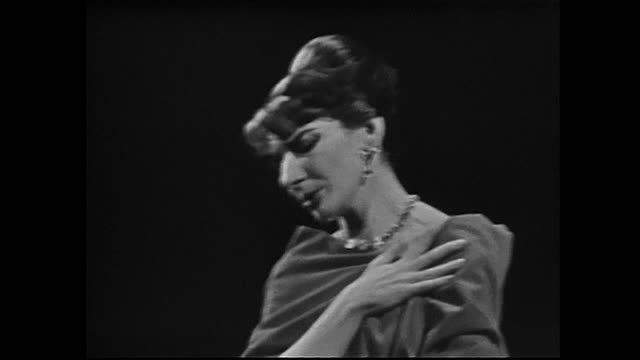
|
CLASSIC ARCHIVE - Celebrating Verdi (Callas, Gobbi, NBC Symphony, London Symphony, Toscanini, Giulini, Sebastian, Mackerras) (1943-1968)
Composer:
Verdi, Giuseppe
Artists:
Callas, Maria -- Giulini, Carlo Maria -- Gobbi, Tito -- London Symphony Orchestra -- Mackerras, Charles -- NBC Symphony Orchestra -- New Philharmonia Chorus -- New Philharmonia Orchestra -- Paris Opera Orchestra -- Sebastian, Georges -- Toscanini, Arturo
Label/Producer: EuroArts |
| CLASSIC ARCHIVE: Celebrating Strauss | |
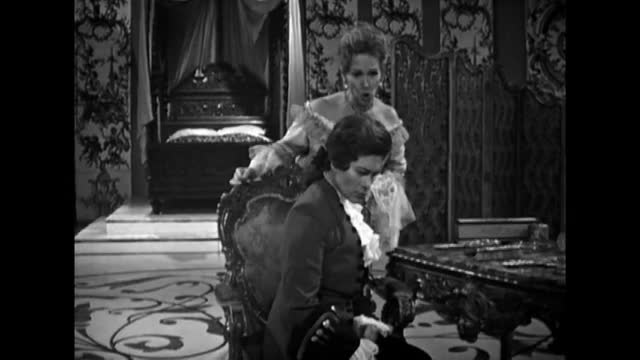
|
CLASSIC ARCHIVE: Celebrating Strauss
Composer:
Strauss, Richard
Artists:
Bellugi, Piero -- Klobucar, Berislav -- Mackerras, Charles -- Moore, Gerald -- Orchestre National de l'ORTF -- Philharmonia Orchestra -- Reiss, Janine -- Schwarzkopf, Elisabeth -- Seefried, Irmgard -- Streich, Rita -- Topper, Hertha
Label/Producer: Ideale Audience |
| GOUNOD, C.: Romeo et Juliette (Royal Opera House, 1994) | |
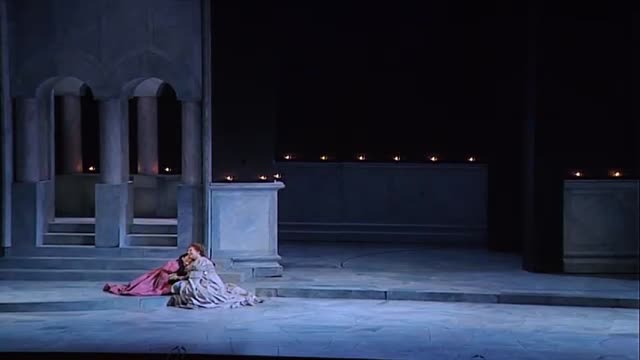
|
GOUNOD, C.: Romeo et Juliette (Royal Opera House, 1994)
Composer:
Gounod, Charles-Francois
Artists:
Alagna, Roberto -- Clarke, Paul Charles -- Halton, Richard -- Lloyd, Robert -- Mackerras, Charles -- Panzarella, Anna Maria -- Roux, Francois Le -- Royal Opera House Chorus, Covent Garden -- Royal Opera House Orchestra, Covent Garden -- Sidhom, Peter -- Vaduva, Leontina -- Walker, Sarah -- White, Jeremy -- Wilson-Johnson, David
Label/Producer: Opus Arte |
| HANDEL, G.F.: Julius Caesar [Opera] (ENO, 1984) | |
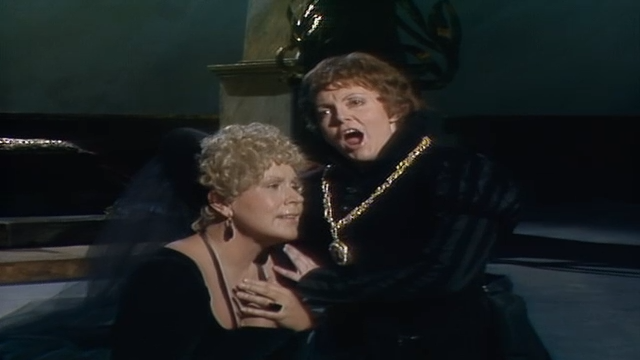
|
HANDEL, G.F.: Julius Caesar [Opera] (ENO, 1984)
Composer:
Handel, George Frideric
Artists:
Baker, Janet -- Bowman, James -- English National Opera Chorus -- English National Opera Orchestra -- Jones, Della -- Kitchiner, John -- Mackerras, Charles -- Masterson, Valerie -- Tomlinson, John -- Walker, Sarah -- Williams, Tom Emlyn
Label/Producer: Monarda Music |
| LADY AND THE FOOL (THE) / PINEAPPLE POLL (Royal Ballet, 1959) | |
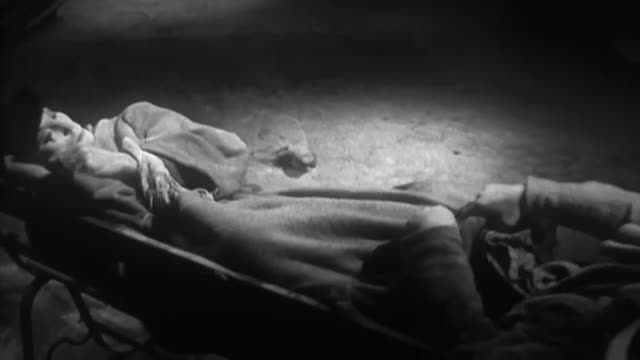
|
LADY AND THE FOOL (THE) / PINEAPPLE POLL (Royal Ballet, 1959)
Composers:
Sullivan, Arthur -- Verdi, Giuseppe
Artists:
Beriosova, Svetlana -- Blair, David -- Holden, Stanley -- Hynd, Ronald -- Larsen, Gerd -- London Symphony Orchestra -- Mackerras, Charles -- Park, Merle -- Powell, Ray -- Royal Ballet, Covent Garden -- Royal Opera House Orchestra, Covent Garden -- Taylor, Brenda
Label/Producer: ICA Classics |
| MOZART, W.A.: Don Giovanni (Royal Opera House, 2008) | |
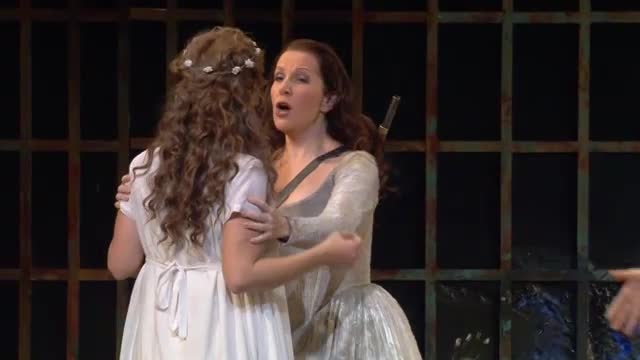
|
MOZART, W.A.: Don Giovanni (Royal Opera House, 2008)
Composer:
Mozart, Wolfgang Amadeus
Artists:
DiDonato, Joyce -- Gleadow, Robert -- Griffiths, Andrew -- Halfvarson, Eric -- Keenlyside, Simon -- Ketelsen, Kyle -- Mackerras, Charles -- Persson, Miah -- Poplavskaya, Marina -- Royal Opera House Chorus, Covent Garden -- Royal Opera House Orchestra, Covent Garden -- Vanderspar, Christopher -- Vargas, Ramon
Label/Producer: Opus Arte |
